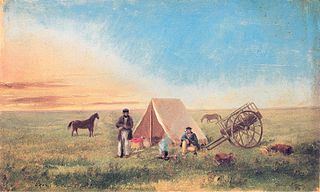CyberTelecom News
Federal Internet Law and Policy
============================================
Those who make peaceful change impossible, make violent change
inevitable. --John F Kennedy
Job Opening: Telecommunications Specialist, PSHSB, FCC http://goo.gl/Yf9Sp
This position is located in the Public Safety & Homeland Security
Bureau, Operations and Emergency Management Division, High Frequency
Direction Finding Center. The incumbent will use radio signal analysis
equipment deployed throughout the United States to collect, correlate,
and analyze characteristics of radio signals involved in interference
problems, distress or safety-related signals or other radio signals
involved in other high priority activities such as law enforcement or
national defense.
A Wireless Duopoly?, Telefrieden
no description
http://telefrieden.blogspot.com/2011/11/wireless-duopoly.html
Are the FCC's Indecency Regulations Constitutional?, MTTLR
Five nonprofit groups recently filed an amicus brief (PDF) in FCC v.
Fox urging the Supreme Court to strike down the FCC's policy of fining
broadcast television stations for airing indecent content. The groups
argue that the FCC's policy violates the First Amendment's free speech
protections.
http://www.mttlrblog.org/2011/11/17/are-the-fcc%e2%80%99s-indecency-regulations-constitutional/
The Wayward ACPA Part 3: Nefarious, Cybertelecom
In this post we explore the origins of the ACPA - the historical
context that led to this legislation.
http://feedproxy.google.com/~r/CybertelecomBlog/~3/eweTR_C5--o/wayward-acpa-part-3-nefarious.html
The Wayward ACPA: Act I: The Land Grab, Cybertelecom
In 1994, WIRED magazine published Billions Registered by Joshua
Quittner. The Internet, with roots going back more than 30 years, had
at that time only recently emerged as a public phenomenon. The World
Wide Web had been unleashed only three years prior. And most corporate
executives would have laughed hysterically at the foretelling of the
coming destruction of their business plans. For
http://feedproxy.google.com/~r/CybertelecomBlog/~3/n8_-VquAUKE/wayward-acpa-act-i-land-grab.html
Boost in IPv6 use is only one step to solution, CW
Support for IPv6 has grown by almost 20 times in the past year by one
measure, but most websites still can't be reached without IPv4, the
current Internet Protocol, which is near running out of unclaimed
addresses.
http://rss.computerworld.com/~r/computerworld/news/feed/~3/e6urySzk7rk/Boost_in_IPv6_use_is_only_one_step_to_solution
Hackers target IPv6, CW
If your IPv6 strategy is to delay implementation as long as you can,
you still must address IPv6 security concerns right now.
http://rss.computerworld.com/~r/computerworld/news/feed/~3/tN-xu-24sDA/Hackers_target_IPv6
IPv6 Adoption Grows By 1900% - Primarily Due to Domain Name Registrar
Support, CircleID
The percentage of zones under .com, .net and .org that support IPv6
has increased by 1,900% over the past 12 months according to a new
census conducted by the Measurement Factory, sponsored by Infoblox.
According to the census, this dramatic increase can be primarily
attributed to the introduction of support of IPv6 by a single domain
name registrar, Go Daddy.
http://www.circleid.com/posts/20111121_ipv6_adoption_grows_by_1900_primarily_due_to_domain_name_registrar/
US Senate Plays Game of 22 questions with NTIA, IGP Blog
A powerful Senator is starting to ask NTIA questions about IP
addressing. On October 4, 2011, The U.S. Senate Commerce Committee's
chairman, Senator Jay Rockefeller, sent a challenging but private
letter to the administration official responsible for overseeing
ICANN, Lawrence E. Strickling. IGP has obtained a copy of the letter
through the US Freedom of Information Act. The letter, which poses 22
tough questions,
http://feedproxy.google.com/~r/IGPBlog/~3/XrzMPglm1FY/4946752.html
Opponents Ask FCC to Release Report on AT&T Deal, WSJ
Opponents of AT&T's $39 billion deal to acquire T-Mobile USA asked the
Federal Communications Commission to release details about its
concerns on the deal.
http://online.wsj.com/article/SB10001424052970203802204577066432953357146.html?mod=rss_Technology
AT&T CEO's surprise call from FCC chairman, WAPO
A couple days before Thanksgiving, AT&T CEO Randall Stephenson
received probably one of the worst phone calls of his career.
http://feeds.washingtonpost.com/click.phdo?i=6770c4a480666464a796138d99b9433e
The evolution of search in six minutes, Google
This summer we posted a video that takes a peek under the hood of
search, sharing the methodology behind search ranking and evaluation.
Through this methodology, we make roughly 500 improvements to search
in a typical year. As we often discuss, that's a lot of change, and it
can be hard to make sense of it all
http://feedproxy.google.com/~r/GooglePublicPolicyBlog/~3/mgNjGtCHQ9c/evolution-of-search-in-six-minutes.html
Feds seize domain names of 150 websites accused of selling
counterfeit, pirated merchandise, WAPO
Federal authorities have shut down 150 websites accused of selling
knock-off or pirated merchandise to unsuspecting online bargain
hunters.
http://feeds.washingtonpost.com/click.phdo?i=13ef70ded0d220cd2d42d43b0f783a6d
Surprise, surprise. More SOPA Opposition., IPLJ
Even the Wall Street Journal thinks SOPA is a bad idea. The Journal
Op-Ed says that Hollywood is trying to "strangle" the internet with
legislation.
http://iplj.net/blog/archives/3743
The PROTECT IP Act Is Very Real and Very Bad — Call Now to Block It, EFF
The PROTECT IP Act (PIPA) is the evil step-sister of the Stop Online
Piracy Act (SOPA), the much-criticized Internet blacklist bill
introduced in the House last month. They've got a lot in common — both
bills would allow the government and private rightsholders to censor
the Internet for Americans, and both bills have faced strong
opposition from regular citizens, business leaders, and public
interest groups.
https://www.eff.org/deeplinks/2011/11/protect-ip-act-very-real-very-bad-call-now-block-it
Another DNS Provider Comes Out Against SOPA, Techdirt
We had already seen OpenDNS publicly come out against SOPA and PROTECT
IP, and it appears other DNS providers are doing so as well. Dyn has
come out strongly against the bill as well, comparing it directly to
the Great Firewall of China.
http://www.techdirt.com/articles/20111123/00111116880/another-dns-provider-comes-out-against-sopa.shtml
NY Times & LA Times Both Come Out Against SOPA & PIPA, Techdirt
We've written a few times about how columnists at various mainstream
press outlets have been speaking out against SOPA and PIPA, showing
that the story is catching on in the mainstream media. However, some
of our critics have complained that since these are just writers for
those publications, it's unfair to suggest that the publication itself
has come out. Okay... if that's the way you want it. Let's try this
one on for size: the New
http://www.techdirt.com/articles/20111126/23150116902/ny-times-la-times-both-come-out-against-sopa-pipa.shtml
Dangerous Copyright Office Proposal to Undercut the DMCA Online Safe
Harbors, Tech & Marketing Law Blog
In light of SOPA and its capacity to destroy the current online safe
harbor scheme, it seems...
http://blog.ericgoldman.org/archives/2011/11/dangerous_copyr.htm
Word of mouth and pepper spray parody, Virulent Word of Mouse
For better or worse, a decade of development in web technology enables
the fast sharing of imagery. "Word of mouth" used to occur verbally,
but some part of it now occurs online.
http://virulentwordofmouse.wordpress.com/2011/11/22/word-of-mouth-and-pepper-spray-parody/
Cloud data gathering rapidly, Cisco reports, Globe
Expect 4.8 zettabytes in cloud data traffic per year by 2015,
equivalent of every man, woman and child watching a full length movie
once a day for one year
http://feedproxy.google.com/~r/TheGlobeAndMail-Technology/~3/HIWsUU5zbYU/
Malls Back Off Cell Tracking Plans - After Getting Phone Call From
Chuck Schumer, DSLReports
Last week we noted that two malls had started tracking user location
in stores, using technology that monitored customer cellphone
location. The two malls -- Promenade Temecula in southern California
and Short Pump Town Center in Richmond, have since backed off the
plans after
http://www.dslreports.com/shownews/Malls-Back-Off-Cell-Tracking-Plans-117194
Privacy-Focused Browser Extension Released, Daily Dashboard
PCWorld reports on a team of European and U.S.-based privacy
researchers and product designers that has released "a browser-based
implementation of Privicons, a project that aims to provide users with
a simple method of expressing their expectations of privacy when
sending e-mail." The "Privicons" are six icons matched with
instructions such as "don't attribute" or "keep private" that users
can add to their e-mails "to
https://www.privacyassociation.org/publications/2011_11_23_privacy-focused_browser_extension_released/#When:16:36:14Z
Technology once protected our privacy, now erodes it, Ars Technica
In light of the erosion of privacy online, we need to be careful to
protect our privacy at home, according to Michael Birnhack, law
professor at Tel Aviv University, speaking at Intelligence Squared's
If conference.
http://arstechnica.com/tech-policy/news/2011/11/technology-once-protected-our-privacy-now-erodes-it.ars?utm_source=rss&utm_medium=rss&utm_campaign=rss
FTC Extends Deadline for Comments on Proposed Amendments to the
Children's Online Privacy Protection Rule Until December 23, FTC
The Federal Trade Commission has extended until December 23, 2011, the
deadline for the public to submit comments on proposed amendments to
the Children's Online Privacy Protection Rule, which gives parents
control over what personal information websites and online services
may collect from children under 13.
http://www.ftc.gov/opa/2011/11/coppa.shtm
FCC Releases Text of Intercarrier Compensation Order, Telecom Law Monitor
Late yesterday, the FCC released the text of its USF Reform and
Intercarrier Compensation Reform Order, which it adopted on October
27. The FCC's rules, among other things, transition terminating
access charges to zero, apply access to VoIP-PSTN traffic, adopt rules
addressing access stimulation (prevalent in free conferencing, for
example), and tackling the problem of phantom traffic.
http://feeds.lexblog.com/~r/TelecomLawMonitor/~3/vBJpp31svhQ/
FCC Issues Behemoth USF Order, CommLawBlog
Call me Ishmael!
http://feeds.lexblog.com/~r/CommLawBlog/~3/rrnK2Ab43rE/
~~~~~~~~~~~~~~~~~~~~~~~~~~~~~~~~~~~~~~~~~~~~~~
Website :: www.cybertelecom.org
Blog :: cybertelecom.blogspot.com
Delicious :: http://del.icio.us/rcannon100/zxc
Twitter & Facebook :: Cybertelecom
Google Group :: cybertelecom-l
AUP :: www.cybertelecom.org/cybert.htm#aup
Cybertelecom is Off-the-Record. Otherwise play nicely.
Link to us! www.cybertelecom.org
~~~~~~~~~~~~~~~~~~~~~~~~~~~~~~~~~~~~~~~~~~~~~~



